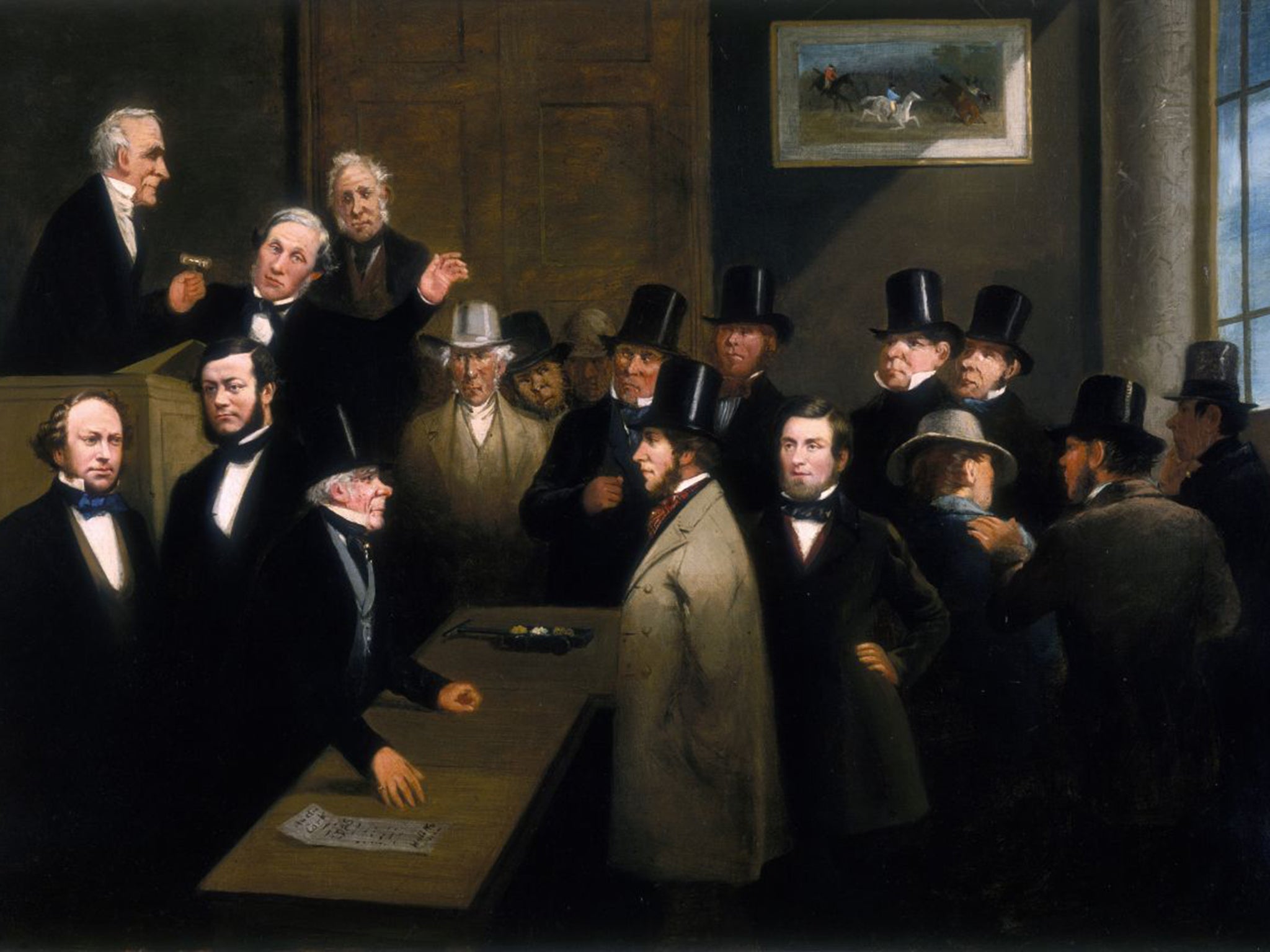Someone should tell Ed Miliband that we are all in business now
For every stereotyped fat controller, there are many struggling to run enterprises from their living rooms

One expected Ed Miliband’s attack last week on the Boots major-domo Stefano Passina, on the grounds that he should stop lecturing the nation’s voters and pay more taxes, to be dismissed by The Daily Telegraph (“Labour’s anti-business prejudice laid bare” and so on).
Rather less predictable was the distinct lack of enthusiasm for the Miliband intervention shown by commentators usually deemed to be on his side. Here the general line seemed to be that Mr Miliband should have opted for subtlety rather than a blunt-ended stick, and that Mr Passina’s right, as an employer of 70,000 British taxpayers, to have an opinion about political arrangements in the UK was pretty much unarguable.
Beyond these immediate criticisms, you inferred, lay the faint hint of reductiveness, an idea that the leader of the Labour Party was examining in black and white an entity whose true dimensions could only be glimpsed in chiaroscuro. All this was naturally compounded by the shadow Chancellor Ed Balls’ calamitous inability, when interviewed on Newsnight by Emily Maitlis, to remember the name of any of his own business advisers. Rightly or wrongly, there wafted into view above the perspiring forehead of Mr Balls a suggestion that Labour regarded “the businessman” as a stereotyped, if not mythological, figure, conceptualised by way of a ready-made qualities, or rather imperfections, that bear no relation to the myriad shapes and guises that 21st century “business” assumes.
For all their undoubted status as two of Her Majesty’s chief ministers in waiting, messrs Miliband and Balls’ uncertainty in this area is understandable, for “the businessman” is a comparatively late arrival to our national landscape. Until at least the mid-19th century such a person scarcely existed. Victorian schoolboys counted out the plum stones which were supposed to predict their careers to cries of “army”, “navy”, “law” and “church”. A man who self-consciously set about making money was either a “tradesman”, a manufacturer or an industrialist, all of whom were regarded with varying degrees of scorn both by the old landed money they were bent on supplanting and the professional classes whose job was to regulate society rather than supply the goods and services necessary to sustain its material needs.

The snobbishness with which most high-minded Victorians regarded “business” – when, that is, they were not envying it – was not merely an upper-class trick, for its symptoms were evident a considerable distance down the social ladder. One mark of it is the conspicuous lack of interest shown by virtually all Victorian novelists in what anyone outside a barrister’s chamber does for a living. Dombey and Son, for example, is the name of a business – the full title is Dealings with the Firm of Dombey and Son, Wholesale, Retail and for Exportation – and yet it is possible to emerge from its 900 or so pages with only the vaguest idea of the commodities in which Mr Dombey actually trades. Charles Dickens, so acute at showing up his character’s pomposity, hasn’t the faintest curiosity about how he makes the money on which his grandiose lifestyle depends.
And so the “businessman” in the classic English novel is usually little more than a caricature, tending at his upper level to straightforward swindlers of the Trollope variety and at the lower to dissenting grocers calling their assistants in to prayers while sanding the sugar and watering the treacle. (Compare this with the vastly more inquisitive atmosphere of early 20th-century American novels by writers such as Theodore Dreiser which are not only about people making fortunes but take an almost forensic interest in how fortunes are made.)
Deep into the modern age, in fact, artistic depictions of “the businessman” are a question of flaring surfaces – the cigar-smoking fat man in an expensive car of the Punch cartoons – and even now the number of works of fiction in which the workings of “business” of any kind is treated with any sort of realism, or written by anyone with any commercial experience, can be counted on the fingers of one hand.
Politics exacerbated this divide, for it was at all times in the Labour Party’s interests to play up the stereotype – see, for example, the wonderful song, sung at party conferences as late as the 1980s, which went “I am the man, the very fat man, who waters the workers’ beer”. Yet in some ways this kind of ignorance is understandable, for until fairly recently the average person’s experience of “business”, though sometimes considerable, was frequently partial and of a kind calculated to hinder any great idea of how it worked. A specimen provincial city in the 1970s would, for example, be full of businesses, from insurance offices to department stores, but in an age of mass employment and specialisation, where 70 per cent of the workforce were engaged either in routine tasks, and the other 30 in highly complex ones, it was very unusual to find anyone in them below managerial level who could describe what the firm “did”: you could labour, let us say, in the Life Office of the Norwich Union Insurance Society, as Aviva was then called, while having very little idea of what the Fire Office got up to or, indeed, the actuarial processes whereby the insuring of people’s properties or their persons can be made to turn a profit.
And if “business”, from the point of view of the layman, was difficult to understand 40 years ago, how much more complicated, and how little amenable to caricature, is it now. Technological innovation, globalisation, niche marketing, that ever-accelerating move from the general to the particular – all these factors have combined to render nearly every department of “business” incomprehensible to those of us who aren’t specifically employed in one. Back in the 1990s when I worked in the City, as a non-specialist corporate copywriter, I could just about explain to enquiring friends the workings of the futures and options trade or the basics of insolvency law or how the particular financial scandals of the era had come about. Two decades later, all this is simply unintelligible, as remote, complex and mysterious as the Battle of Lepanto.
None of this, naturally, is helped by the image-broking of the media. Asked to dilate on what a “businessman” looks like here in 2015, the average non-business person would probably plump for wholly unrepresentative figures such as Sir Richard Branson, or Lord Sugar or, at a slightly more elevated remove, that favourite of the Daily Mail, the former Marks & Spencer boss, Sir Stuart Rose. But the modern businessman and woman is much more likely to be the proprietor of a small technology start-up, or a manufacturer of bespoke handbags renting a solitary studio, or a tiny publisher working out of his, or her, front room with the unsold stock piled up next to the TV, or even yours truly, for what is a freelance writer if not a one-man business?
To return to the Labour Party’s current difficulties, Mr Miliband is entitled to criticise business, or even to have an anti-business agenda, but first he really ought to explore some of the multitudinous compartments of which modern business consists.
Join our commenting forum
Join thought-provoking conversations, follow other Independent readers and see their replies
Comments
Bookmark popover
Removed from bookmarks